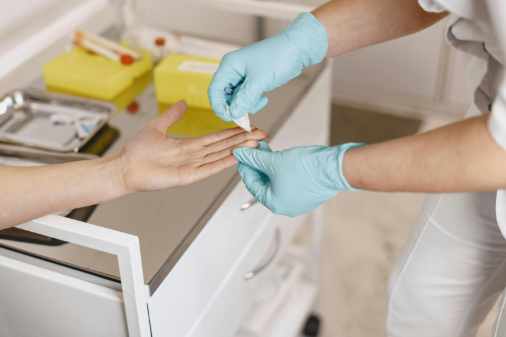5 Tips to a Healthy Heart
5 Tips to a Healthy Heart

Did you know that February is American Heart Health Month? To celebrate heart health, this month we will explore ways you can keep your heart healthy. Whether you have suffered a serious cardiac event, or just want to take better care of your body, these tips will apply to you.
Cardiac Care for All
Whether you have suffered a cardiac event, or just want to take better care of yourself, these tips will apply to you. The best way to prevent a cardiac event, another heart attack, or a cardiac incident is to keep caring for your heart health. Luckily, the team of specialized doctors at Franklin Foundation Hospital in Louisiana has provided these five informational tips for heart health.
What is a Cardiac Event?
Here are the types of cardiac events we specialize in at Franklin Foundation Hospital:
● Heart Attack
● Artificial Ventricular Support
● Angina
● Treating or Replacing a Heart Valve
● Coronary Bypass Surgery
● Coronary Angioplasty
Protect Your Heart with These Tips
For life-long heart health, it’s important that you create routines to minimize your chances of facing a cardiac event. The providers at Franklin Foundation Hospital advise these steps for living a longer life.
1. Exercise
Your cardiologist will recommend exercise to improve your heart strength. It is important to know your present fitness level, your stamina and ability, the severity of your symptoms, and a variety of other aspects of your health as these all play a role in determining how much exercise you should be doing to improve your heart health.
Resistance exercise can be beneficial, depending on your current health. It’s important to keep tabs on your vitals throughout workouts, such as your pulse rate and blood pressure. Once you collect your results, you should share them with your cardiologist.
A physical therapist may also be beneficial in ensuring your safety. They may assess your flexibility, heart rate at rest, muscular strength, breathing rate, endurance level, blood pressure, and, if applicable, the mobility of any surgical scars.
A typical workout will begin with a warm-up, progress to cardiovascular activity (such as riding a stationary bike or walking on a treadmill), and then end with a cool-down period.
2. Education
February is the perfect time to monitor your heart health. Having all the knowledge you need to enhance your quality of life, control your symptoms, and feel confident in your ability to care for yourself despite your heart disease is crucial. After a cardiac event, most of the time will be spent learning about the necessary lifestyle modifications and stress management.
3. Lifestyle
You should stop smoking and exercise consistently for long-term heart health. In Phase 3, your team of rehab professionals will assist you in making the required lifestyle adjustments and provide you with valuable advice on how you can continue adhering to them.
4. Stress Control
You must develop effective stress management skills if you have a cardiac issue. You may be taught relaxation techniques such as deep breathing and meditation to keep your stress levels under control, even after you’re done with rehab. You may also undergo therapy to address any underlying issues causing stress.
5. Diet and Nutrition
Patients with cardiac issues should prioritize a heart-healthy diet. It's also essential to avoid placing too much stress on your heart by sticking to a healthy weight-loss and maintenance routine.
The cardiac rehabilitation staff will likely offer you a meal plan. Fruits, vegetables, whole grains, and lean meats are typical components of a heart-healthy diet, as they are low in sodium, sugar, and trans fats.
Heart Health + Quality of Life
Improving your quality of life is one of the most significant advantages of taking better care of your heart. Franklin Foundation Hospital currently provides full-service primary care to meet the medical requirements of western St. Mary Parish. For almost 50 years, we have dedicated ourselves to providing exceptional healthcare services in a warm, welcoming environment built on mutual respect and concern for our patients. Contact us for more information.



